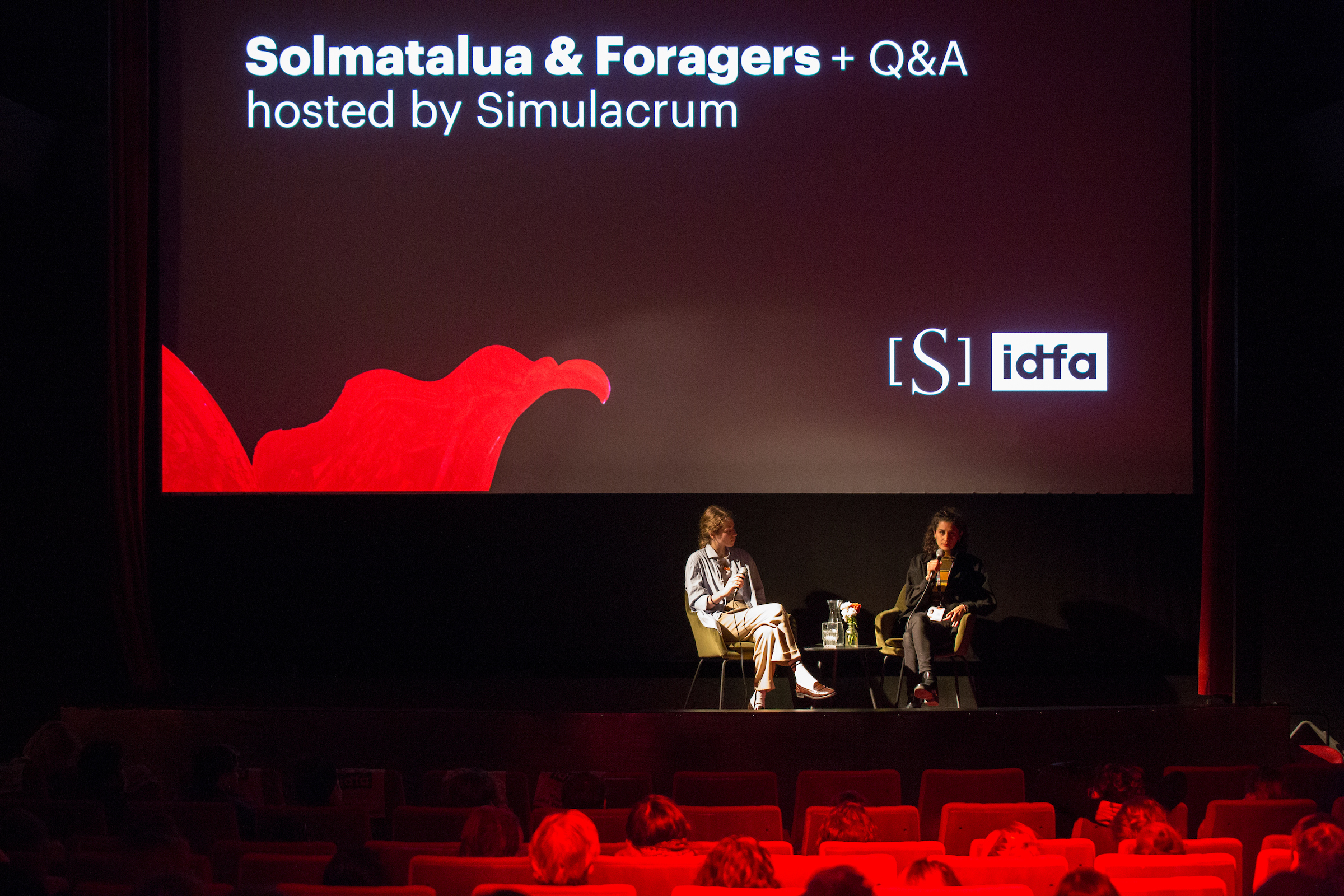In November 2022 director Jumana Manna joined a conversation with Marta Pagliuca Pelacani and the audience during IDFA to discuss her latest film Foragers (2022).
“The film is an exercise in imagining alternative, affirmative care structures that remain, within and beyond the current reality, aligned towards plant and human life alike.” (from Jumana Manna, e-flux architecture: https://www.e-flux.com/journal/113/360006/where-nature-ends-and-settlements-begin/ ).
During the Q&A, Manna was asked by Pagliuca Pelacani to expand upon the relationship between foraging, agency and food sovereignty in Foragers (2022): if food is a container for family and communities histories tired to the land, as well as for traditions that face suppression, then how does the practice of foraging a land under siege help one to imagine it otherwise? What exactly happens when you forage that mends this alienation? And what imaginiaries are fostered by foraging as a way of knowing?
Screening of Solmatalua (2022) and Foragers (2022)
Solmatalua (2022) by Rodrigo Ribeiro Andrade
Foragers (2022) by Jumana Manna
Q&A with Director Jumana Manna
moderated by Marta Pagliuca Pelacani
Kriterion
14th November 2022
Organised by IDFA
hosted by Simulacrum
Jumana Manna is a Palestinian visual artist and filmmaker. Her work explores how power is articulated, focusing on the body, land and materiality in relation to colonial inheritances and histories of place. Her practice considers the tension between the modernist traditions of categorisation and conservation and the unruly potential of ruination as an integral part of life and its regeneration. Jumana was raised in Jerusalem and lives in Berlin.
Solmatalua (2022) by Rodrigo Ribeiro Andrade
Foragers (2022) by Jumana Manna
Q&A with Director Jumana Manna
moderated by Marta Pagliuca Pelacani
Kriterion
14th November 2022
Organised by IDFA
hosted by Simulacrum
Jumana Manna is a Palestinian visual artist and filmmaker. Her work explores how power is articulated, focusing on the body, land and materiality in relation to colonial inheritances and histories of place. Her practice considers the tension between the modernist traditions of categorisation and conservation and the unruly potential of ruination as an integral part of life and its regeneration. Jumana was raised in Jerusalem and lives in Berlin.



Ph. IDFA
